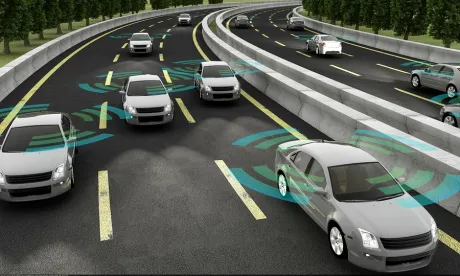Go-To Guide: |
|
After more than five years of implementation and regulatory processes, on Aug. 10, 2023, the California Public Utilities Commission (CPUC) voted to approve groundbreaking resolutions allowing autonomous vehicle (AV) companies Cruise and Waymo to operate like taxis and charge passenger fares at any hour in San Francisco (technically a “Phase I Driverless Autonomous Vehicle Passenger Service Deployment permit”). This major step forward in AV public use in California expands the availability and use of driverless vehicles in competition (and/or partnership) with Uber, Lyft, taxis, and others in San Francisco (and potentially elsewhere in California, including further down the S.F. Peninsula and in Los Angeles, where testing activities continue). As per these CPUC resolutions, “[w]ith this authorization, [Cruise and Waymo] may offer passenger service in [their] autonomous vehicles without a safety driver present throughout the city of San Francisco, at all hours of day or night, among other conditions specified in its Operational Design Domain.” Cruise and Waymo are both “…authorized to collect fares for these rides.” Waymo is also now authorized for full service into parts of neighboring San Mateo County.
This disruptive innovation to transportation technology represents a novel legal, regulatory, and economic advancement, albeit not without policy implications and some public controversy. The CPUC issued its resolutions approving expanded services by a 3-1 vote (with one Commissioner not voting), and after divided public comment and over the strong objections of city and county of San Francisco agencies (which raised concerns that the approval is premature and doesn’t adequately take into account safety and first-responder issues). Los Angeles transportation authorities filed concerns similar to San Francisco’s.
The CPUC’s authorization represents a first-of-its-kind, full-scale California urban-use case – and approves routine and widespread use by passengers in San Francisco and extends the ability of Cruise and Waymo (and potentially others) to utilize AV cars for fare pick-ups at anytime and anywhere in the city. Waymo continues its AV operations in the Phoenix metro area as well.
Until now, the CPUC had set up a deployment system with supervised and limited use and availability. On May 31, 2018, pursuant to Decision 18-05-043, the Commission authorized two pilot programs for the private prearranged transportation of passengers in test AVs: (1) The “Drivered AV Passenger Service” pilot program for the provision of passenger service in test AVs with a driver in the vehicle; and (2) The “Driverless AV Passenger Service” pilot program for the provision of passenger service in test AVs without a driver in the vehicle. Under the pilot program, a communication link between passengers and “remote operators” of the vehicle had to be available and maintained at all times during passenger service. Then on Nov. 20, 2020, pursuant to Decision 20-11-046, as modified by Decision 21-05-017, the CPUC authorized Phase I of programs for drivered and for driverless AV service. Under the Phase I Deployment Programs, participants could charge fares for AV passenger service. Applicants for the Driverless Pilot Program and the Driverless Phase I Deployment Program had to include Passenger Safety Plans, while applicants in the AV deployment programs were required to obtain an Autonomous Vehicle Deployment Permit from the California Department of Motor Vehicles.
Thus, until now the companies operated in San Francisco (and Waymo in certain other California locales) with limitations. Cruise was authorized to offer fared passenger service in limited areas of San Francisco from 10 p.m. to 6 a.m. without a safety driver present, fared passenger service throughout San Francisco at any time with a safety driver present, and non-fared passenger service throughout San Francisco at any time without a safety driver present. Waymo was authorized to offer fared passenger service throughout San Francisco at any time with a safety driver present and non-fared passenger service throughout San Francisco at any time without a safety driver present. Waymo remains authorized to offer non-fared passenger service in parts of Los Angeles with a safety driver present, and in and around Mountain View with a safety driver present.
Both applicant companies filed Advice Letters in late 2022 for approvals to expand and offer full services. After formal protest from San Francisco local transportation agencies, as well as numerous formal comments in support, the CPUC Resolutions approved Aug. 10, 2023, allow full use of driverless (no accompanying drivers or others in the front seats) – thus fully allowing these robocab services in the city and parts of San Mateo. CPUC rulemaking will generally continue relating to safety and other issues presented by local agencies, first responders, and other stakeholders, and the Commission retains authority to conduct investigations and take action against licensees in the future. The CPUC has also urged the companies to work with local agencies to meet safety and other concerns.
With this approval, there is now the potential for full commercial deployment of robocabs in California cities, under the CPUC’s regulatory regime and with regulators facing economic and political pressures to move forward. Cities and states will likely continue to look closely at these new technologies, especially related to safety and other policy concerns, but this disruptive technology is now “out the door” and opens a new economic, legal, and regulatory regime in California that may yet be followed and modeled in other cities and states.



 />i
/>i

